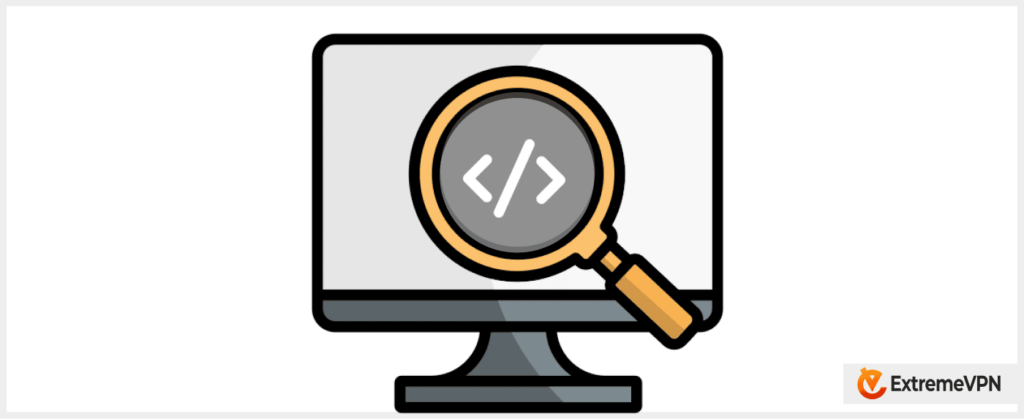Metadata is the footprint we leave behind on the internet highway. The more we interact with the internet, the more trails we have. With enough of these data, it is easier for third parties to frame a clear picture of our real-world selves, activities, and interactions.
Unfortunately, this kind of information can get into the hands of hackers, which can spell disaster. As such, we advise using a VPN to obscure your IP address and keep the private data you share to a minimum while giving you a safe and enjoyable experience. Learn what metadata is, its major types, and why it is important.
What Qualifies as Metadata?
- Your phone calls, the people you call, and when.
- Your emails, their recipients, and the time you sent them.
- When and where you make use of your credit card.
- The websites you visit, the computer you use, and the time you visit.
While these details seem meaningless, they can inform observers about your true self offline and online.
Metadata Types
Metadata exists in a few different categories, depending on its nature. The various types of metadata include the following:
- Structural: It refers to the information regarding digital data structure. This includes but not exclusively, headers, pages, and chapters.
- Administrative: Administrative metadata is information that makes specific digital resource management much easier. This information can entail all data related to resource type and all permissions related to the content.
- Reference: It refers to statistical data quality, content, and nature.
- Descriptive: This type of metadata describes digital content’s core elements and nature.
- Statistical: Also called process data, it refers to information on statistical data. It also includes the mode of data collection, processing, and production.
Online Content and Metadata
To truly gauge what online data means, we must understand it through a few factors. These include:
- Message Metadata (Details on what was said and when): Message type, author, post date & time, versions, links (full links), location, likes, privacy settings, friends, and comments.
- Client Metadata (Details on who collected it): Operating system, Browser, user, IP address.
- Web Server/API Endpoint Metadata (Details on where and when it was collected): Headers, HTTP, type, URL, date & time of the request, and response.
- Account Metadata (Details on who owns it): Account owner, location, bio, and description.
While all this information might look simple and textual to you, the backend has a lot of complex information, usually represented as code.
Why is Metadata Important?

Metadata, as we have established, is often dismissible information. So why is that “invisible” information so important? Even if you don’t regard metadata as important because it serves no purpose to you, it can mean a lot in the right hands or, rather, wrong hands.
Metadata, such as social media and web content, is very important in the authentication process of online content. This means that metadata is necessary for compliance and even litigation. In simpler terms, with it, you can ascertain the legitimacy of online content, such as posts or comments. In addition, the metadata helps inform when, where they were posted, and by whom.
It is also important in regulated corporations such as the public sector or financial services. It helps to authenticate records, and FOIA/Open Records laws often govern these firms. In addition, when external auditors wish to audit said firms, they will request metadata regarding official website records for a clearer picture of the records.
In the litigated industry, metadata holds an even higher level of importance. The litigated industry refers to legal matters, and in that space, authenticity is crucial. So you can see how metadata would hold so much stock.
And as the world continues to improve technologically, information like emails, enterprise collaboration conversations, and social media comments are all too integral to litigation. For example, if either of the details mentioned above were brought up as part of “evidence,” then the court would demand that their authenticity be proven with metadata.
Hence, we maintain that Pagefreezer’s records are authentic. The data is archived securely, ensuring only authorized personnel can access it. The archive contains complete Metadata, digital signatures, and timestamps, making it generally easy for an auditor to access records for scrutiny.
Immersion: Your Email Metadata, Visualized
Immersion is a product of the brilliant minds over MIT Media Lab. Smikov, Jagdish, and advisor Cesar Hidalgo created the Immersion product to help us visualize email metadata.
The goal is to help illustrate your relationships with people and how those connections have grown. With this product, your social media reflects real-world activities and decisions.
Immersion has created a social network map with social groupings using thousands of emails. These groups may comprise family, work colleagues, and friends, each segmented into the locations and times you may have encountered or communicated with them.
From this mapping, you can track your activities and gauge your interaction and identity, and how they change over time. However, you might wonder if someone else can read this and recognize the patterns. As you may have guessed, the answer is yes. With Metadata compiled into the Immersion software, anyone can deduce who you are, who you talk to, and where you go, eat, or live, among other details.
For some additional interesting context, we constantly ignore mountains of metadata in emails daily without knowing it. How? Your email app or webpage only shows you a quick view of your recent emails; everything else is hidden behind multiple pages. Think about how many pages hold 20 emails each, and you’d see how easy it would be for someone to access your real-world activities and interactions from your Metadata if they got their hands on it.
What Does This All Mean?
Well, for one, now our online activities have the potential to put us and those we communicate with at great risk. These online activities are the backbone of our modern life; we cannot function without them, which makes it problematic, unfortunately.
But it’s not all bad news; you can still protect your Metadata from those seeking to harm it. You may consider using cell phones, email addresses, or even anonymous search engines, but that still leaves you open to potential risks. They do not even reduce your metadata footprint that much; there’ll still be enough to identify you.

This is where VPNs play a vital role in protecting sensitive metadata so it can’t be used for surveillance. A top-notch VPN, like ExtremeVPN, hides your IP address and erodes your internet footprint as you journey through several web pages.
ExtremeVPN protects you from indiscriminate access to your Metadata and keeps any prying eyes from your online activity. This is important because, with your information lays bare, you might encounter many consequences, even if your online activities are completely legal and safe. As a result, you must control how much power third parties have over you.
However, the truth is that metadata is going nowhere soon, and its power should always be underestimated. While the good sides that metadata proposes will make it much easier to enjoy the full internet experience safely, this does not discount the risks of getting into the wrong hands.
